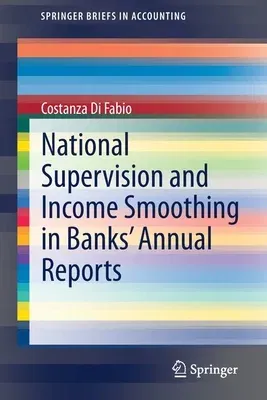Costanza Di Fabio
(Author)National Supervision and Income Smoothing in Banks' Annual Reports (2021)Paperback - 2021, 18 May 2021

Qty
1
Turbo
Ships in 2 - 3 days
In Stock
Free Delivery
Cash on Delivery
15 Days
Free Returns
Secure Checkout
Part of Series
Springerbriefs in Accounting
Print Length
96 pages
Language
English
Publisher
Springer
Date Published
18 May 2021
ISBN-10
3030740102
ISBN-13
9783030740108
Description
Product Details
Author:
Book Edition:
2021
Book Format:
Paperback
Country of Origin:
NL
Date Published:
18 May 2021
Dimensions:
23.39 x
15.6 x
0.56 cm
ISBN-10:
3030740102
ISBN-13:
9783030740108
Language:
English
Location:
Cham
Pages:
96
Publisher:
Series:
Weight:
158.76 gm

